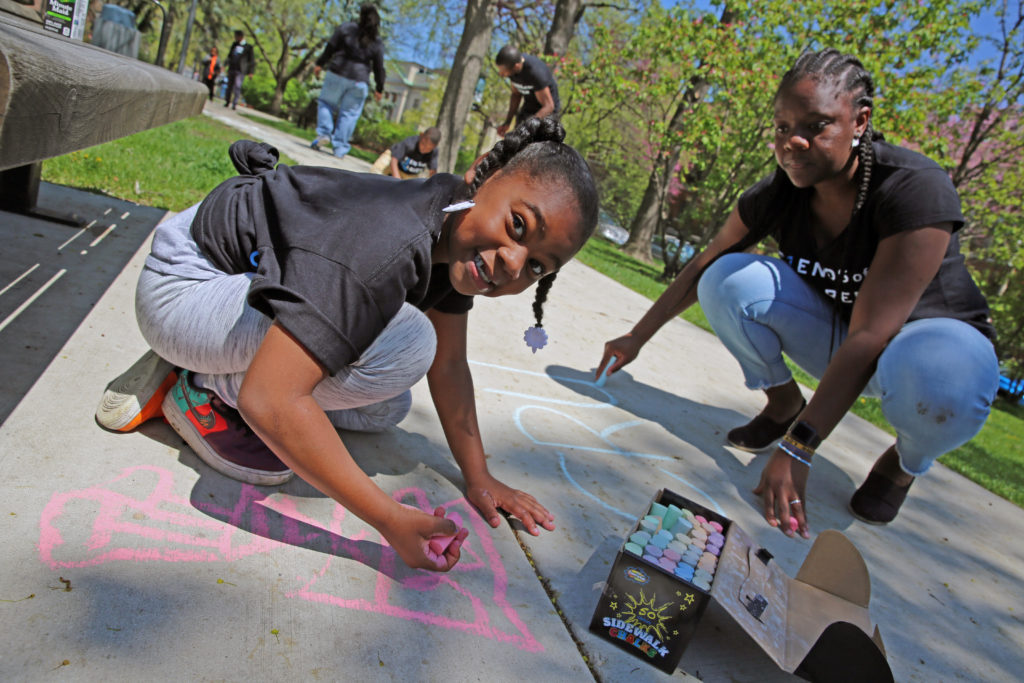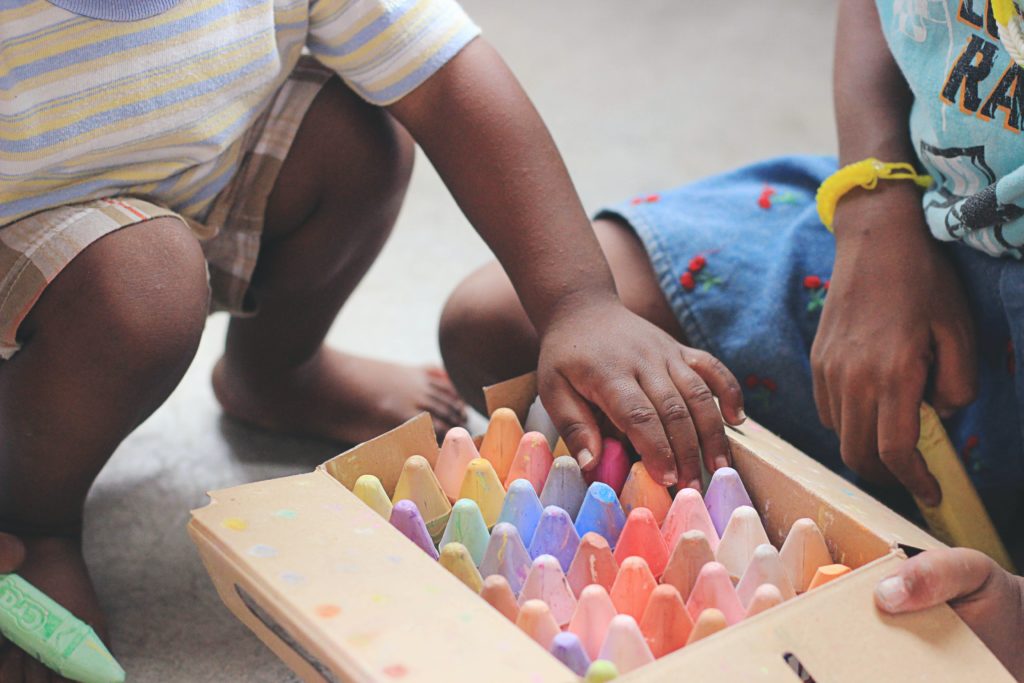When schools were suddenly closed last month, even as I worried for my students and their families, I was blown away by the teachers, families and administrators I saw quickly springing into action. Without any training, resources or time to prepare, we were designing meaningful remote learning experiences for students. We were—and still are—doing an extraordinary job.
For the first couple of weeks, we were fine with independent reading, self-paced learning, and open-ended projects, since we didn’t really know what we were doing. Nor did we know how long we’d be doing school remotely. But now that it’s looking like this thing might drag on longer than we anticipated, our fear instincts are kicking in. And when our fear instincts kick in, it’s only natural to revert back to what we know. However, doing so might also limit our creativity and erode our trust in our students and their families.
Many of us are feeling the pressure—pressure from above and pressure we put on ourselves—to “cover” every single skill and standard for each grade level, in much the same way we did before school closing. As we are, we are letting problematic assumptions about the nature of learning creep into the new classrooms we are creating. We’re scared that if a student doesn’t master something now, they will never in their lives be exposed to it again. We’re acting as if learning is completely linear and each child is an empty bucket that needs filling.
As we build these new schools from the ground up, we need to be sure that we’re not relying on practices that may be ineffective, outdated or even oppressive.
- Do we need to set students up on every possible digital learning platform because we hope that by exposing them to everything, something, anything, will stick?
- Just because we relied heavily on mind-numbing
And let’s face it—most teachers love being in charge. It’s in our DNA. But now that we’re away from them, are we trying to be in charge of every waking minute of our students’ days? Is that really necessary?
Maybe, for a brief couple of weeks, we actually had it right. Now, I’m starting to feel a familiar pressure—the same old breadth-over-depth pressure that can make schools a soul-sucking place for both students and teachers alike. Rather than using these extraordinary times to do what we know deep down is best for students, in some instances, we are replicating what is already broken in education.
This is a chance to take a break from that. Maybe it is more than a crisis. Maybe it’s an opportunity—an opportunity to do better.
I will be the first to admit that I don’t have all the answers, but as we continue forward with remote learning, let’s take a second to slow down and think critically about what we’re doing.

There’s No Need to Over-Control Our Students’ Daily Lives
Think about homework. As if being in charge all day long isn’t enough, we also dictate how students and families spend their evenings through the homework we assign. A prevalent assumption that informed our practices pre-COVID—that whatever assignments the all-knowing teacher provides are essential and far superior to whatever students could possibly do on their own—is now creeping into remote learning.
As teachers, we know the importance of preparation and we are trained to plan meaningful learning experiences. But trusting in ourselves as professionals has never meant that we must dictate how students spend every waking hour of every single day. It was true before, and it is true now.
Let’s not let our egos and the circumstances we face lead us to act in ways that are unintentionally disrespectful to our students. Let’s remember that our students and families are human beings who have individual agency. Just because most students have more free time in their day right now does not necessarily mean that we need to be the ones to fill it all.
In times of uncertainty, it feels comforting to control what we can control, and it comes from a genuine place of caring and concern for our students. But trying to over-control our students’ days also assumes that students are unmotivated and will not learn anything unless they are forced.
We should stop seeing unscheduled time as a chance to cram in more “real” learning and instead start to look at it as an opportunity for more inquiry, play, conversation and real-world social interaction—things that are sorely lacking in many traditional school settings. Trust that your students are learning all sorts of important things every single day.

Let’s Also Trust Our Families and Stop Making Assumptions
This trust in our students must extend to families as well. In well-meaning conversations I’ve had with other educators about how remote learning has been going, it seems as though we’re distinguishing in our minds the “good” parents who are capable of keeping their children “on task” and the “other” parents who are not.
When determining which parents get the gold stars, is our only metric that they’re doing exactly what we’re telling them to do? When teachers express their concerns about the students who “just aren’t getting the support at home” right now, how often are those parents coincidentally low-income or parents of color?
Let’s not assume that, just because parents are doing something with their children other than what we assigned, or are not emailing us incessantly and snapping pictures of every completed project, that those parents are not having their students do any work.
Further, let’s release ourselves and our families from two false notions:
- That academic content is the only thing worth learning.
- That homework with your child is the only thing worth doing, during this pandemic and afterward.
Sadly, there are students who do not come from stable, supportive homes. But be careful about making assumptions about who those students might be.

Forget ‘Can We Give Grades Without Technically Giving Grades?’
At my school and I’m sure at others, we’ve been having discussions about how to assess students remotely while still adhering to CPS’ grading policy. CPS policy—which, for the record, I think is very good—states that during school closures, grades must be assigned, but grades can only be entered into the gradebook if they improve a student’s grade.
In other words, a low score, either for not completing work or for not mastering the concepts, cannot be counted against anyone. However, assignments can be marked incomplete in the *hope* that students will complete them if and when we return to school.
The subtext of all these conversations we’re having seems to be: Can we give grades somehow without technically giving grades? How can we trick students into doing the work when we don’t really have grades to threaten them with? It’s as if grades are the only tool schools have to motivate students. The same logic surfaces when we’re talking about parent engagement. So many of us think we’re only going to get parents to do anything during these weeks away if they’re worried their child might receive a failing grade.
These discussions make me sad because it shows just how grades-focused and grades-dependent our education system has become at the expense of deep and meaningful learning. And, just like in many schools long before this, meaningless completion grades will be given because we have to give them something. Pointless grades will be handed out because some people believe that’s the best we can do right now, not because we think the information we glean is especially valuable or helpful in planning for future instruction. It’s what we’ve always done, so we’re going to keep doing it.
But perhaps more importantly:
Why are we worried about grades in the midst of a global pandemic?
Are letter grades really all that important in the grand scheme of things? Are we so myopic in our views that we can’t even begin to imagine school without them? If we’re not willing to dismiss grades entirely, what about moving to a pass-fail system for all? What might be the impact, especially on students, who for years have been made to feel inferior by letter grades?
I feel like this is an opportunity to critically examine our assessment practices, and perhaps to see how more progressive approaches might positively impact students’ attitudes toward school and learning. But perhaps that opportunity has already been wasted.

Let’s Seize the Moment and Rethink Learning and Assessment
Our priority should be students’ emotional health, and helping them to feel supported and connected to the school community. After that, our focus should be on student learning and ensuring as many students as possible have access to and are engaged with meaningful content. And if the goal of assessment is to communicate academic progress, I’m pretty sure most parents are going to know their child as a learner a whole lot better than they did before all of this.
I get it. It’s all happening so fast. And in times of uncertainty, it’s human nature to fall back on what we know. However, these uncertain times are also times of tremendous possibility—a time to experiment, innovate, reflect and build schools that reflect our values and are driven by what we know in our hearts to be true about children and learning. If we trust in our students, our families, and ourselves and are brave enough to reject the things that no longer serve us, there is no telling what we can accomplish.
Top Photo by Tina Floersch on Unsplash.
Sara Urben
Latest posts by Sara Urben (see all)
- Moms, This Teacher Sends Appreciation Right Back at Ya - May 8, 2020
- Let’s Focus on What Matters Most Right Now - April 8, 2020
- How This Teacher Is Handling The COVID-19 School Closures - March 16, 2020

1 comment for “Let’s Focus on What Matters Most Right Now”